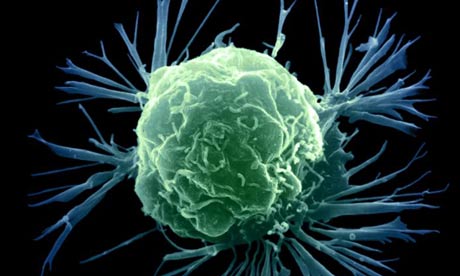
(JUDY KIBARIA) – The Kenya Cancer Association (KCA) on Monday said the latest deaths of prominent people through cancer should be ‘a wakeup call to action.’
In an interview with Capital News, KCA Special Program Advisor Newton Siele said interventions were needed urgently to reduce the burden of cancer in the country.
“It is sad that we have lost great people of this country to cancer and we really condole with the families that are affected. But for us this should be really a wakeup call for the country not to look behind but face this issue that is called cancer head on,” he said.
Renowned environmentalist Prof Wangari Maathai whose funeral was held on Saturday lost her battle to ovarian cancer.
On Saturday night, Kenya lost yet another prominent personality – Court of Appeal judge Moijo ole Keiwua – to the disease.
Siele said cancer will continue claiming more lives if people do not take control at a personal level.
Unlike before when cancer was classified to be more prevalent in certain age groups, he said the trend was no longer for specific ages but affected both children and adults.
Bad lifestyles, a lack of exercise and junk food are some of the contributing factors to cancer as he explained, “People are exercising far less, their eating habits have gone from bad to worse. People are eating less vegetables and fruit but eating more red meat which is a good cancer attraction.”
He said bad habits like too much alcohol and smoking were high risk habits likely to cause cancer.
“People are normally advised not to necessarily stop drinking alcohol but to reduce it to moderate amounts, but what they should do is, to quit smoking,” he warned.
According to World Health Organisation (WHO) vaccination against human papilloma virus and hepatitis B virus are also key in the prevention of cancer.
He also advises people to go for regular cancer screening, saying it could help in early detection of cancer as he explained it would enable better management or sometimes completely lead to full treatment of cancer.
However there are high risk populations of people coming from families with a history of cancer.
According to the WHO, people suffering from chronic infections such as hepatitis B, hepatitis C virus and some types of Human Papilloma Virus are also at risk.
Government intervention
Siele acknowledged the publication of the Cancer Control Bill which he urged Parliament to fastrack to ensure its full implementation.
He said once enacted into law, accessibility to affordable cancer services will roll out across the country giving people an opportunity for screening and also manageable treatment for those affected by the disease.
October being the cancer month, Siele identified awareness and encouraging people to go for screening as key in responding to the diseases through early detection.
He urged people to go for early check ups for all types of cancers including breast cancer, lung cancer, stomach cancer, liver cancer, cervical cancer and prostate cancer among others.
WHO has identified cancer as a leading cause of death worldwide with estimates of 7.6 million deaths in 2008.
Out of these, WHO says 30 percent of them can be prevented.
WHO further projects over 11 million deaths in 2030 in the globe through cancer.
